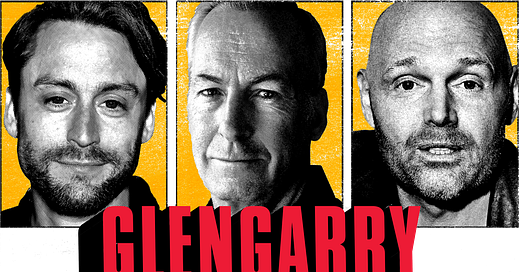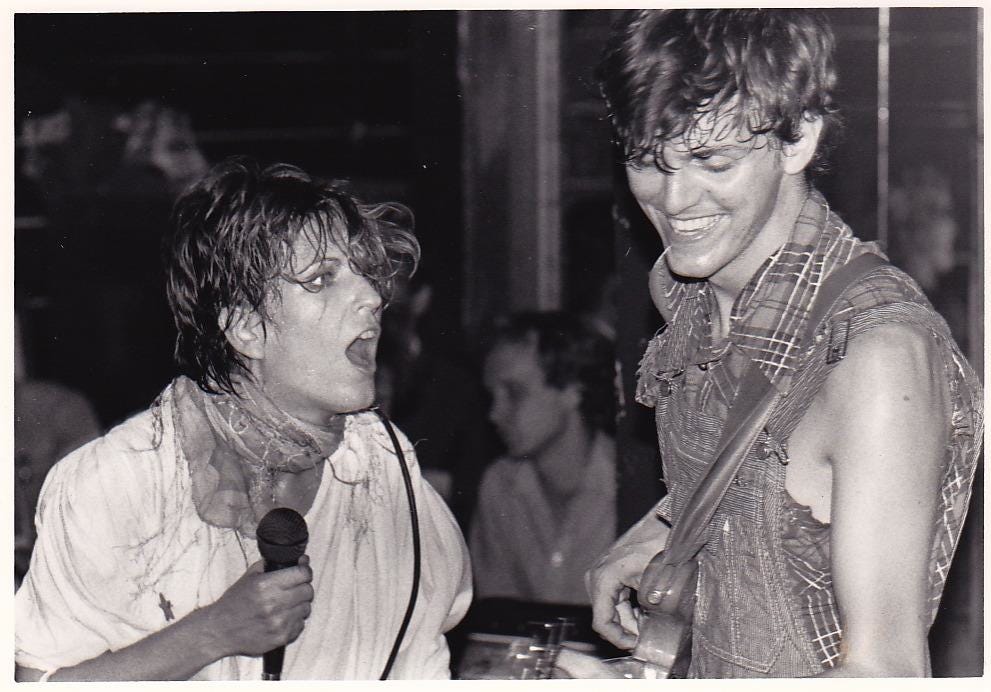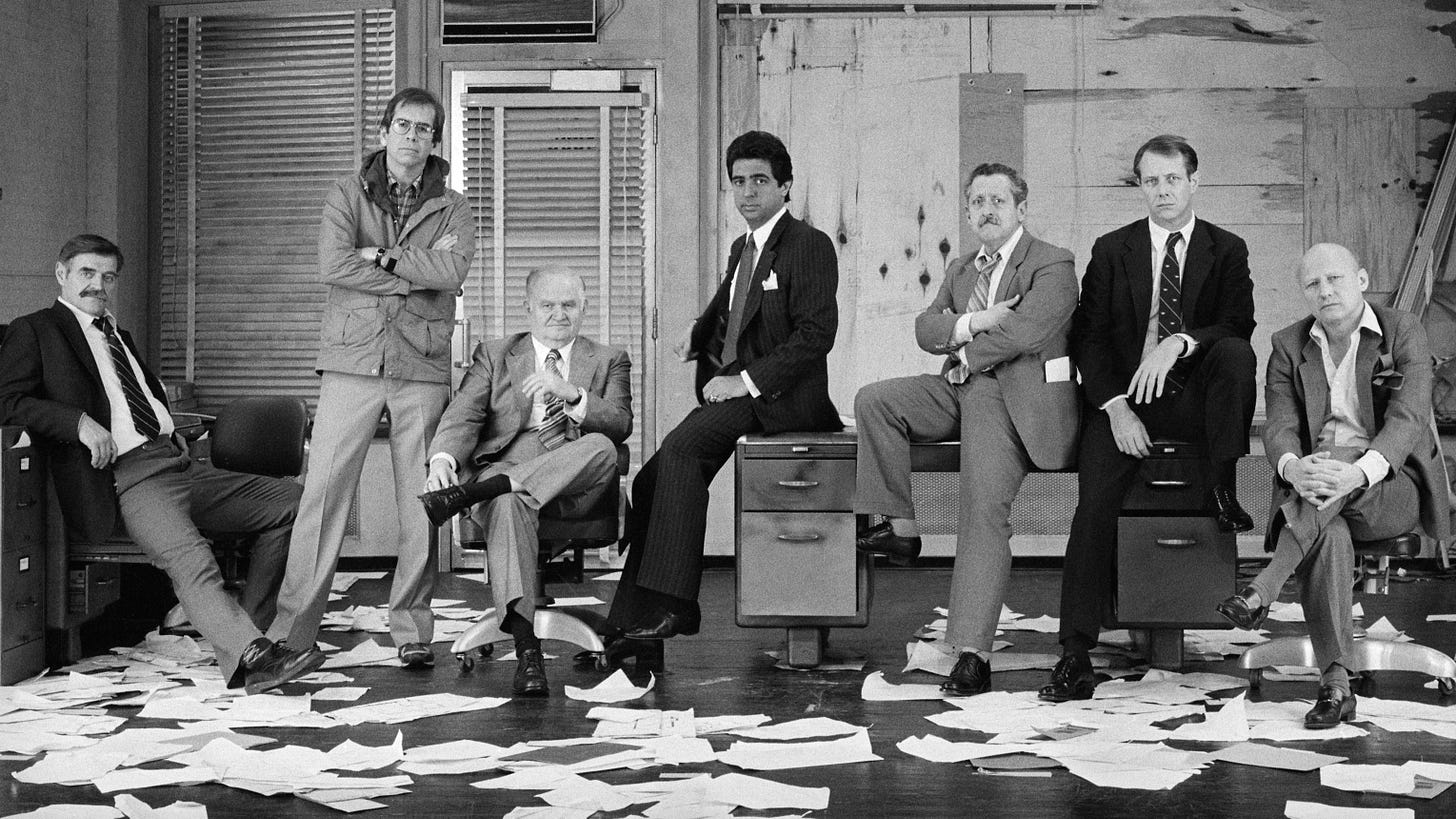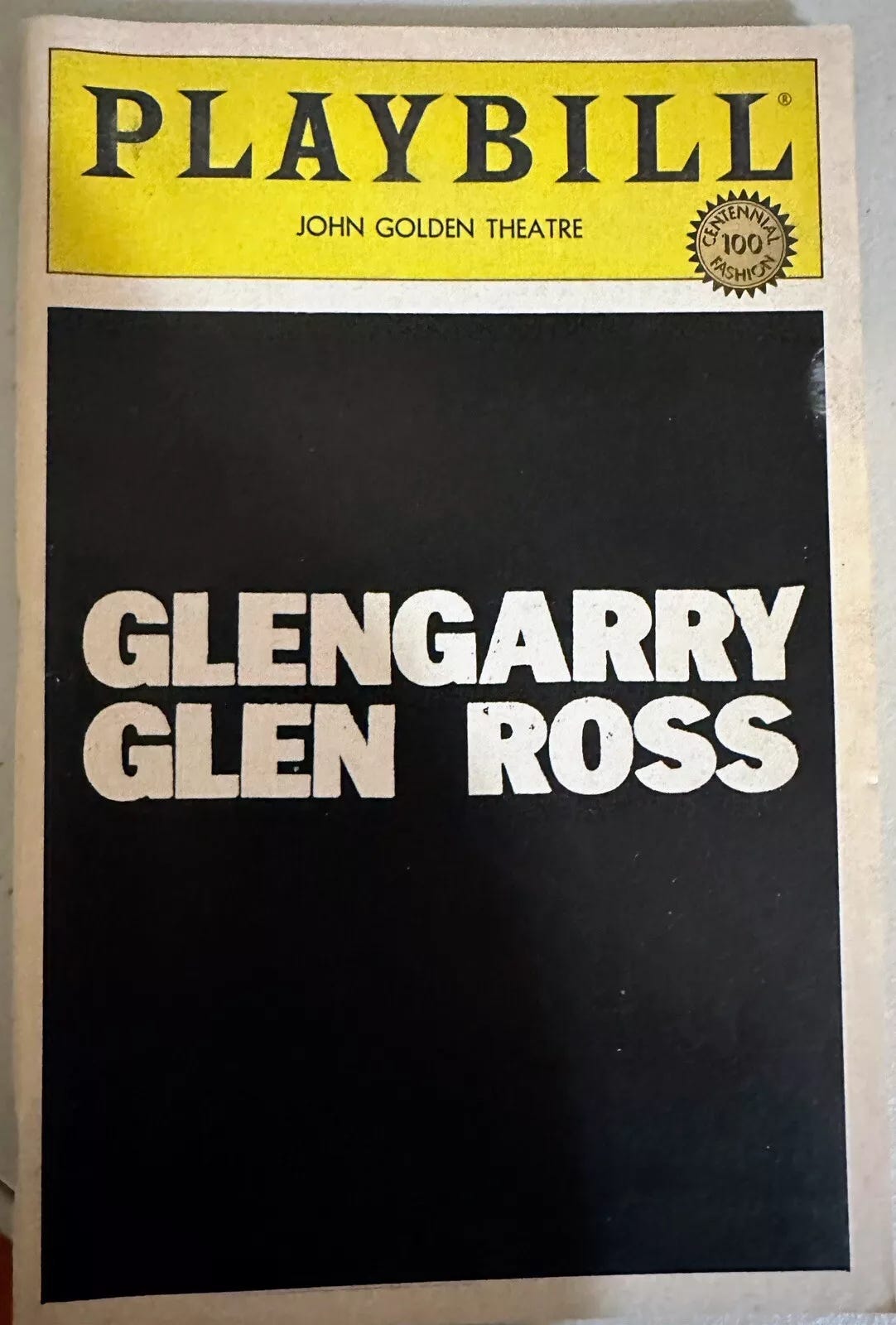Recently, I laid down a sizable chunk of money for three tickets to an April performance of David Mamet’s Pulitzer prize-winning Glengarry Glen Ross, starring Kieran Culkin, Bill Burr, Bob Odenkirk, and Michael McKean. How much? Put it this way: not as much as our last electric bill, but more than the latest repairs on our 2016 Subaru Forester.
I already know it will be worth it. Even in the unlikely even it’s a subpar show, I will still owe Mamet’s masterpiece a debt.
My first Glengarry Glen Ross experience changed me, schooled me. ‘Twas a summer 1984 performance, the original Broadway cast, starring up-and-comer Joe Mantegna as “cutthroat charmer” Richard Roma. I was a nineteen-year-old bass player on tour, enjoying a night off in the Big Apple. Poor as a church mouse, happier than a pig in shit. I’m pretty sure my companion, a Tisch School of the Arts sophomore, paid for the mezzanine tickets.
I’d headed into the world a fatherless kid who’d been raised mostly by intense Southern women. These ladies brooked none of what we now call “toxic masculinity.” Authoritative adult males in my life were scarce, and I sensed no poverty in that. In high school, my clique of art brats was coined “the Drama Fags,” and we owned the slur. About certain types of men – sexist, racist, competitive, domineering, voluble, dangerously seductive – I was clueless, and not particularly curious.
What a shock awaited me in the 800-seat John Golden Theater.
Vivified by the best Chicago actors, Glengarry Glen Ross mesmerized me. And every other soul in that room. That performance connected me intimately to strangers in a way I’d never experienced.
So these were the types of men who, like it or not, built much of the culture, employing storytelling as both sword and shield. Storytelling. Terrified at the prospect of losing power, such desperate con men behave very badly, and, under the contrived circumstances of the work, very entertainingly. (In “real life,” not so entertaining.)
All in a real estate office, mind you. (The play’s title refers to two different sham developments – Glengarry Highlands, Glen Ross Farms.) I took my theater seat knowing little about alpha males, even less about real estate. Nothing about business. I barely understood capitalism. None of that ignorance mattered.
And wow, y’all, the language. The much-ballyhooed dialog. Rhythm, syncopation, blue notes, atonality, clusters of “vulgar” words made euphonious. Language as music, tweaking multiple brain centers.
Both content and execution were as good as it gets.
I’ve never gotten over that night, the emotional truth laid bare onstage, cocks-of-the-walk so vulnerable. Sons-of-bitches evoking sympathy. All enjoyed by a riveted crowd in real time.
At nineteen, I was already familiar with lying, posing, subterfuge. I’d been both victim and perp. Baldfaced truth in day-to-day life was rarely discernible to the conscious mind. So much dancing and code, motives clear only in hindsight. Until you saw a quality play or film, or heard a great song, read a fantastic book, an incisive poem, you were accustomed to fakery, lulled by it. Then, lo, the paradox of art: the lie that tells the truth. And when it blazes, the revelation invigorates like nothing else.
Numbers can only do so much. But ingeniously wrought, musical language… that way lies magic. At least in the life I was to make.
Over the ensuing forty-one years, I would encounter Glengarry-type guys. In bands, theater, recording studios, day jobs, bars, school board meetings, town halls, the odd courtroom. Sometimes, quite frankly, I would be like them, or ashamedly think like them. With the clarity of years, I see a pattern of entering, and then abandoning, relationships with domineering dudes whose predictable actions, as co-orchestrated by me, I would not, could not, forgive. Couldn’t afford. To this day, through both luck (bad) and, if I’m honest, design, I count more women than men as friends. And painfully few trusted pals.
Perhaps this is due to my dad’s drunken departure via car crash when I was seven. By all accounts a “dangerously charming” alpha male guy, I would know RBW Sr. only in my shadowy, fitfully-expressed DNA, yellowing photos, and a few tales, often disturbing, doled out haphazardly over the decades. Did this man’s untimely death saddle me with “abandonment issues?” “Trust issues?” Maybe. But maybe not. The veracity of these notions depends on what kind of therapy I’m engaging in, what narrative I’m concocting with my counselor.
Sometimes that blame just feels like a story without a stage, still abstract, not yet rendered via the creative impulse, made nuanced, complicated. Maybe that woeful tale of cause-and-effect is oversimplified bullshit. A narcotic of sorts.
Some things are certain, though. I’ve seen lots of theater since that 1984 night, ingested much art. At this writing, more than any other theatrical experience, Mamet’s one hour and forty-minute play (with a fifteen minute intermission) taught me well about so-called “masculinity,” filled in some gaps from my past, and offered some clarity going forward. Glengarry Glen Ross revealed to me hitherto unseen aspects of the world from which I sprang, the world into which I was voyaging, and the terrain within me.
These days, when my distinct maleness asserts itself, for good and for ill, I am as likely to think of Mamet’s characters as my own father.







very prescient, my friend, for i, just recently re-addressed Glengarry via the film, which is STILL valid and stands up quite WELL! there's something in the air. a few years ago, i read Mamet's one actual novel, Chicago, and did not enjoy it very much. of course, it would make a great play or a movie, but too jumbled to be a novel (similar to what i think about james ellroy's later works - see: White Noise, et al). i have really not seen many plays, live. but, you were lucky to catch that particular production!! savor that, like duck butter. xxxcm
hey, did you see this yet?!? i'm dying to know how it is! bill burr and michael mckean?? i'd be there.